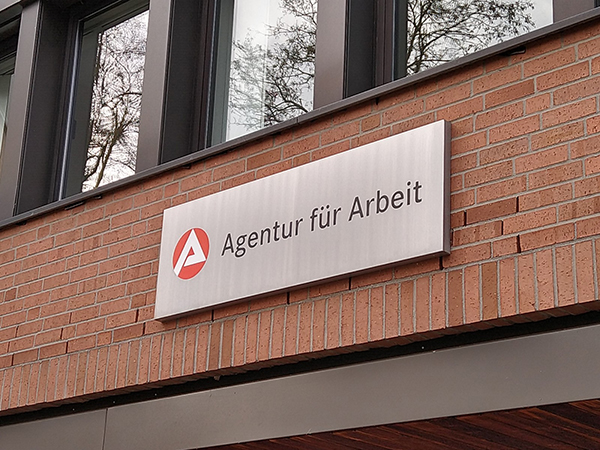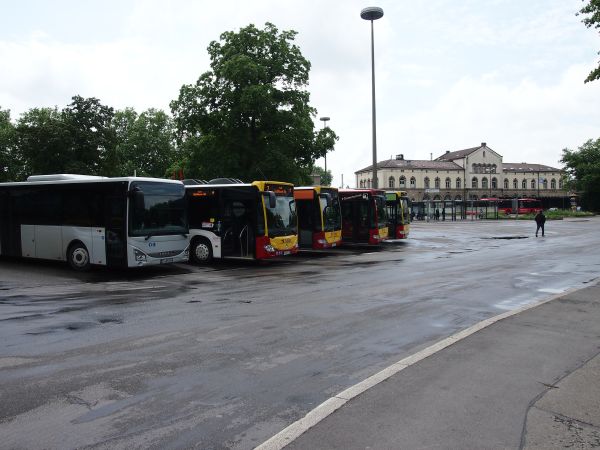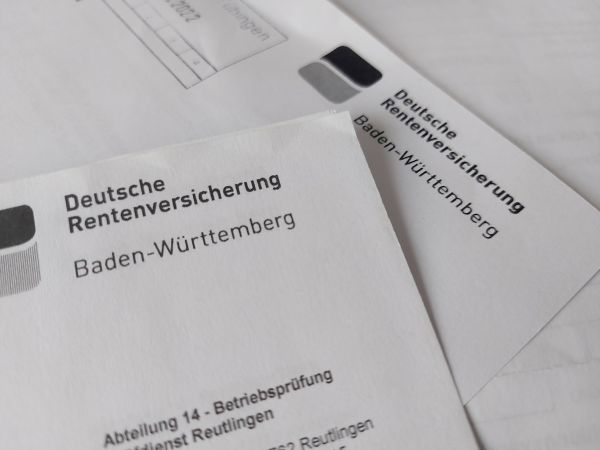Exactly 10 years after the introduction of the legal right to a daycare place for children after the age of one, the German Council of Experts on Integration and Migration (SVR) presents an analysis of how this law is being implemented for children with an immigrant background. According to the report, immigrant families are still at a disadvantage when it comes to daycare centers: The hurdles to finding a daycare place are higher for them, their children attend a daycare center less often than children without an immigrant background. According to figures from 2020, 40 percent of children under the… Read More
Category: 2-EVERYDAY LIFE
Bürgergeld: Keeping more of your income
Since 1 July, those who receive the citizen’s income (Bürgergeld) allowance are allowed to keep 30 per cent of the money they earn themselves. This applies to earnings between 520 and 1,000 euros. Previously, they were only allowed to keep 20 percent. The advantage is even greater for those under 25: “Young people keep the income from school and student jobs and the income from vocational training up to the mini-job limit of currently 520 euros,” says the employment agency. Earnings from holiday jobs may also be kept without deductions. Expense allowances for voluntary work do not lead to a… Read More
Orientation for parents: The vaccination calendar
In Germany, there are vaccination recommendations for children to protect them from various diseases. These recommendations are published by the Standing Commission on Vaccination (STIKO). There is also a vaccination calendar there that parents can use to get an overview of when their children should be vaccinated against which diseases. The recommended vaccinations include measles, mumps, rubella, whooping cough and tetanus. With one exception, these are recommendations: Only for measles is there a vaccination requirement for children older than one year who go to kindergarten, daycare or later to school. Vaccinations are paid for by the statutory health insurance funds.… Read More
By bus directly to Stuttgart
A direct bus will take passengers from Tübingen to Stuttgart’s main railway station without changing. The offer runs until Tuesday, 5 September. The bus starts at the Tübingen bus station in front of the main station. From Monday to Friday, the bus departs at 5.10 a.m. and between 6.10 a.m. and 10.40 p.m. every half hour. Journey time: 55 minutes. At weekends, the bus runs less frequently— see timetable in the link. In Stuttgart, the first bus to Tübingen leaves on weekdays at 6.05 am. From Monday to Friday, it runs every 30 minutes between 7.05 am and 11.35 pm.… Read More
No amalgam fillings for pregnant women and nursing mothers
Pregnant women and nursing mothers are not allowed to receive dental fillings containing amalgam. This is regulated in an EU directive that has been in force in Germany since 2018. The ban also applies to children and young people under the age of 15. This means that patients can receive other fillings— mostly made of plastic—without co-payments during this time. “People insured by a statutory health insurance fund are entitled to a filling for which they do not have to pay a co-payment in any case. The dentist must point this out in the consultation before the start of treatment,”… Read More
Construction work on railway lines and the B 27
Travelling from Tübingen by public transport will not be easy for a few weeks. The reason is construction work on the routes. If you want to travel to Stuttgart, for example, you should check the connections at www.bahn.de or at the counter in the station and plan more time. This affects the rail connection between Tübingen and Nürtingen until Wednesday, 23 August. The trains will be replaced by buses. From Thursday, 24 August, until Tuesday, 5 September, only buses will run between Tübingen and Reutlingen. The IRE 6(a) from Stuttgart to Tübingen is completely cancelled until Friday, 8 September. There… Read More
Holiday time is travel time: Useful tips from the Federal Foreign Office for all travel countries.
The time of the school holidays is travel time for many people. For all foreign destinations, the website of the Federal Foreign Office, the German Ministry for Foreign Affairs, provides important tips on what you should bear in mind when planning a trip abroad. Information is available, for example, on the regulations for entering the country, which travel documents are required, whether a visa must be applied for and where it can be obtained. Customs regulations for goods and objects taken along are also explained, as are regulations for entering the country by car. An important chapter covers health and… Read More
Tafel takes summer break
The Tübinger Tafel will take a summer break from Saturday, 5 August, until Friday, 1 September. During this time, there will be no food available in the shop at Eisenbahnstraße 55/57. This is reported by the Tafel on their homepage: www.tuebingertafel.de/ However, the distribution stations – the so-called Fairteiler – which deliver food free of charge in Tübingen and the surrounding area, will continue to be filled. Further information is available at: www.tuebingen.de/tuebingen-macht-blau/fairteiler You can bring food to the distribution stations if it is still food that is still good but can no longer be consumed in your own household.… Read More
Money for old age: pension insurance is mandatory
In Germany, all employees except civil servants pay a contribution to the statutory pension insurance fund out of their wages. From this—if they have paid in long enough—they receive a pension every month in old age. The statutory pension insurance is an important part of the German social system. Who gets how much can only be clarified in individual cases. From the age of 27, the German pension insurance sends out a letter every year stating, among other things, how much the pension will be. What does the pension insurance pay? The pension insurance pays a pension in old age… Read More
Morality police in Iran control headscarf obligation
More and more women in Iran do not wear a hijab in public. This is a symbol of their protest against the regime. A police spokesman has now announced that women without hijabs will be subject to increased controls and punishments. To this end, there are to be more patrols by the morality police again. This is reported by Iranian and international media. Exactly what the tougher punishments will look like is still open. Parliament still has to vote on a draft of the new law. The women’s resistance was triggered by the death of the young Kurdish woman Jina… Read More










